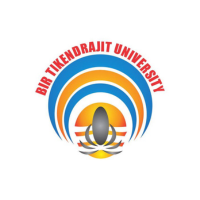Masters Of Technology [M.Tech] – BTU
M.Tech, short for Master of Technology, is a postgraduate level program that focuses on specialized areas of engineering and technology. It is designed to provide students with advanced theoretical knowledge and practical skills in their chosen field. The program typically spans over two years and includes coursework, research, and a thesis or dissertation.
Branches in M.Tech:
-
Chemical Engineering: This branch focuses on the design, operation, and improvement of processes that involve chemical or biological transformations. It covers areas such as chemical reaction engineering, process design, and optimization.
-
Process Control and Instrumentation Engineering: This branch deals with the design, implementation, and maintenance of systems that control and monitor industrial processes. It includes topics such as control theory, instrumentation, and process optimization.
-
Computer Science and Engineering: This branch covers the study of computer algorithms, programming languages, software development, and computer hardware. It also includes topics such as artificial intelligence, data mining, and computer networks.
-
Software Engineering: This branch focuses on the principles and practices of designing, developing, and maintaining software systems. It includes topics such as software design, testing, and project management.
-
Electrical Engineering: This branch covers the study of electrical systems, electronics, and electromagnetism. It includes topics such as power systems, control systems, and electrical machines.
-
Power Systems Engineering: This branch focuses on the generation, transmission, and distribution of electrical power. It includes topics such as power system analysis, renewable energy systems, and power electronics.
-
Mechanical Engineering: This branch covers the study of mechanical systems, machines, and materials. It includes topics such as thermodynamics, fluid mechanics, and manufacturing processes.
-
Thermal Engineering: This branch focuses on the study of heat transfer and thermodynamics. It includes topics such as combustion, refrigeration, and energy systems.
-
Electronics and Communication Engineering: This branch covers the study of electronic devices, circuits, and communication systems. It includes topics such as digital signal processing, wireless communication, and microelectronics.
-
VLSI System Design: This branch focuses on the design and implementation of very large-scale integrated (VLSI) circuits. It includes topics such as digital design, semiconductor technology, and system-on-chip design.
Career Opportunities: Graduates with an M.Tech degree in these specialized branches have a wide range of career opportunities in industries such as manufacturing, electronics, telecommunications, software development, and research and development. They can work as design engineers, project managers, consultants, or researchers in both public and private sectors.
-
Bachelor's degree from a recognized university in a relevant engineering or technology field.
-
Typically, candidates must have completed a B.Tech or B.E program.
-
Minimum marks or CGPA requirements for admission.
-
GATE (Graduate Aptitude Test in Engineering) qualification is often mandatory for admission



